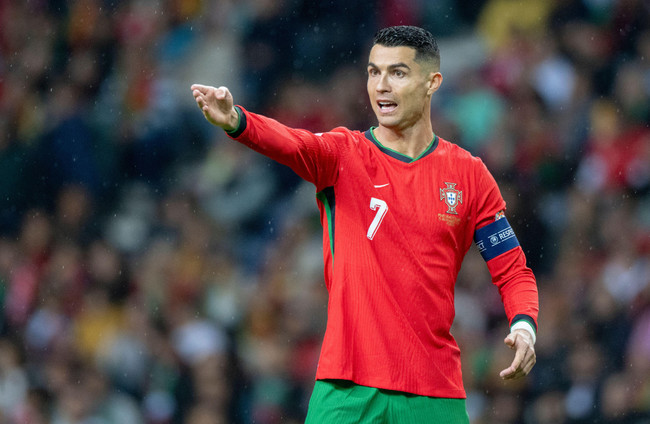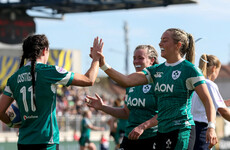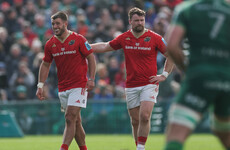THE FEELING in the Irish camp is noticeably different compared to the previous draw for a major tournament qualification phase.
Ahead of the 2024 Euros, Stephen Kenny’s side were given the difficult task of progressing in a group with France, Netherlands, Greece and Gibraltar.
There is more optimism this time and a sense that at least two of the three teams they will face are beatable.
The Boys in Green defeated Hungary in a pre-Euro 2024 friendly last June.
They also won their most recent encounter with Armenia in a September 2022 Nations League match 3-2, but Stephen Kenny’s side were also beaten 1-0 in Yerevan in that same campaign.
Of course, the 3-0 friendly defeat by Portugal in June was less encouraging, but Kenny’s side did cause them serious problems in the 2022 World Cup qualifiers, losing 2-1 away and drawing 1-1 at home.
Halgrimsson too can take encouragement from the fact that his Iceland side held eventual competition winners Portugal to a 1-1 draw at Euro 2016.
Meanwhile, between 2017 and 2019, Ireland played Denmark no fewer than six times, drawing five and losing one, so they are a team some of the current squad will be especially familiar with.
“I think there are going to be lost points in this group, that’s my feeling,” Heimir Hallgrimsson said on Friday.
“I have this gut feeling that Hungary and Portugal will take points from each other. So it gives more chances for teams in the third pot to go there. Whether it’s Denmark, Portugal or Hungary, we can get points from those games.”
Below, we take a look at Ireland’s three/four potential upcoming opponents and assess their quality…
Portugal/Denmark
Denmark would be arguably the kinder of the two draws here, as Ireland prepare to face the winner of these two sides’ two-legged Nations League playoff in March.
Facing Brian Riemer’s men would not be easy. They finished second in their Nations League A group, behind Spain but ahead of Serbia and Switzerland.
They also have a decent record at recent major tournaments — they reached the Euro 2024 round of 16 before getting knocked out by a strong German side.
But many of their well-known players are past their prime — Christian Eriksen (32), Kasper Schmeichel (38) and Jannik Vestergaard (32) have seen better days, while previous stalwarts like Simon Kjær, Thomas Delaney and Mathias Jørgensen have retired.
Like Ireland, they have a new coach (former Brentford assistant boss Riemer was only appointed in October) and although there is plenty of promise in younger generation players like Mikkel Damsgaard (24), Matt O’Riley (24) and Rasmus Højlund (21), it remains to be seen whether they can be as good as their predecessors.
Meanwhile, Portugal are seemingly the team to avoid. They sit sixth in the Fifa World Rankings, 15 places above the Danes.
They have countless top-class players, including Rúben Dias, Bruno Fernandes, Bernardo Silva, Diogo Jota and Gonçalo Ramos.
They weren’t at their best at the last Euros, losing to Georgia, needing penalties to beat Slovenia and getting dumped out by France in the quarters on spot kicks.
One of the main issues cited for their sub-par showing was an over-reliance on legendary player Cristiano Ronaldo.
The Al Nassr forward will be 40 by the time of the potential Ireland game, and it will be interesting to see whether he is finally forced to accept a more peripheral role in the squad during the upcoming campaign.
Either way, Roberto Martínez’s side would be formidable opponents, as illustrated by a recent Nations League campaign in which they were unbeaten and comfortably finished top of their group ahead of Croatia, Scotland and Poland.
“If you want to qualify, you need to get points, you need to be competitive against these good teams,” Hallgrimsson said. “And you cannot concede a lot of good goals against these best teams. So those kinds of plans you need to prepare once to go into this.
“I hope we will have taken these steps, I think we have been taking these steps to be more organised, to be ready to play these games. If we want to qualify, we need points against these teams that are seeded above us.”
Hungary
Tipped as the potential dark horse at Euro 2024, Hungary ended up flattering to deceive.
They did not progress beyond the group stages, despite beating Scotland, having lost their opening two games against Switzerland and Germany.
They have not qualified for a World Cup since 1986 and also crashed out at the group stages at Euro 2020, so in hindsight, it seems less of a surprise that they looked ill at ease on the big stage.
Their Nations League campaign was not much of an improvement.
They won only one out of six games in Group A3. Like Ireland, they face a relegation playoff after finishing third, ahead of Bosnia and Herzegovina but behind Germany and Netherlands.
Liverpool’s Dominik Szoboszlai is the captain and obvious star of the team.
Overall, the squad does not look especially strong, but they have had much better results than Ireland in recent years — they are 30th in the Fifa rankings, 30 places above the Boys in Green
10 of their most recent 23-man squad were domestic-based, while Shamrock Robers fans may remember 24-times-capped Bendegúz Bolla, who started against the Hoops in their recent Uefa Conference League draw with Rapid Wien.
Omonia’s Ádám Lang, Hoffenheim defender Attila Szalai, RB Leipzig centre-back Willi Orbán, Spezia midfielder Ádám Nagy and Galatasaray attacker Roland Sallai are among their most experienced players.
In addition to Szoboszlai, they have a handful of other English-based players to potentially select — Plymouth’s Kornél Szűcs, Bolton’s Szabolcs Schön, Blackburn’s Balázs Tóth, Bournemouth’s Milos Kerkez and Callum Styles of West Brom.
“Psychologically, it’s good to have played them and good to have won against them,” Hallgrimsson said.
“It’ a good team, good players going forward, creative players like Szoboszlai. A good opponent but not unbeatable.”
Armenia
Ireland know all too well that they cannot afford to underestimate Armenia.
Yet the minnows have not gone from strength to strength since their shock win over the Irish in Yerevan.
If anything, they have receded and currently have interim boss Suren Chakhalyan at the helm.
They had a decent enough World Cup qualification campaign by their standards. The Armenians picked up another memorable win over Romania and finished fourth in their group on 12 points, ahead of Iceland and Liechtenstein.
Yet their subsequent Nations League campaign was mired by inconsistency.
They emerged as runners-up but finished only a point ahead of Faroe Islands and nine adrift of first-place North Macedonia. Bottom of the table Latvia were the only team they managed to avoid defeat against.
They have never qualified for a major international tournament since gaining independence from the Soviet Union and playing their first international match in October 1992.
Barring a major shock, that trend looks set to continue for these qualifiers for the team at 100 in the Fifa World Rankings.
The squad lacks household names and the majority are domestic-based, but they have several players competing at a high level, such as attacker Grant-Leon Ranos of Borussia Mönchengladbach, Krasnodar pair Eduard Spertsyan (who scored the winner against Ireland in Yerevan) and Georgy Arutyunyan, and Lokomotiv Moscow duo Nair Tiknizyan and Edgar Sevikyan.
“Tricky opponents. But if we are going to qualify, we need six points against Armenia,” Hallgrimsson said at Friday’s press conference.















Great article, short and sweet.
Pulling on my Puma Kings and kicking the hole off a kid in a pair of pink boots is one of the great pleasures of the sporting life.
Never throw out a pair of football boots, someday you’ll take them in your hands and remember what it was like to be young and not give a damn about anything more ninety minutes.
Puma Kings are the best. Always loved wearing them.
I wore Black adidas copa mundials as a kid, my dad got them for me as i was the only sports child. They were the best boots ever…if my old man saw me wearing anything but black boots he’d call me a Nancy boy.
I was about to reply that’s mine we’re Prada , then I noticed it was about football boots! Well I wore Gola back in the day when I played women’s soccer!! :-)
Sums up soccer very nicely indeed. Glad the proper football is back today. Earnestly hope it too doesn’t go the way of soccer.
Care to expand?
Well you’re a real barrel of laughs